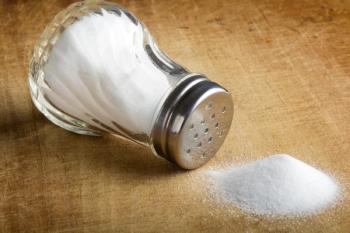![Jodi Gilman, PhD, on cumulative prenatal adversity linked to adolescent mental health risk Document Jodi Gilman, PhD, on cumulative prenatal adversity linked to adolescent mental health risk Live? Do you want this document to be visible online? Scheduled Publishing Exclude From Home Page Do you want this document to be excluded from home page? Exclude From Infinite Scroll Do you want this document to be excluded from infinite scroll? Disable Related Content Remove related content from bottom of article. Password Protection? Do you want this gate this document? (If so, switch this on, set 'Live?' status on and specify password below.) Hide Comments [Experiment] Comments are visible by default. To hide them for this article toggle this switch to the on position. Show Social Share Buttons? Do you want this document to have the social share icons? Healthcare Professional Check Is Gated [DEV Only]Do you want to require login to view this? Password Password required to pass the gating above. Title Jodi Gilman, PhD, on cumulative prenatal adversity linked to adolescent mental health risk URL Unique identifier for this document. (Do not change after publishing) jodi-gilman-phd-on-cumulative-prenatal-adversity-linked-to-adolescent-mental-health-risk Canonical URL Canonical URL for this document. Publish Date Documents are usually sorted DESC using this field. NOTE: latency may cause article to publish a few minutes ahead of prepared time 2026-01-19 11:52 Updated On Add an updated date if the article has been updated after the initial publish date. e.g. 2026-01-19 11:50 Article Type News Display Label Author Jodi Gilman, Phd > Gilman, Jodi Author Fact Check Assign authors who fact checked the article. Morgan Ebert, Managing Editor > Ebert, Morgan Content Category Articles Content Placement News > Mental, Behavioral and Development Health > Clinical AD Targeting Group Put the value only when the document group is sold and require targeting enforcement. Type to search Document Group Mapping Now you can assign multiple document group to an article. No items Content Group Assign a content group to this document for ad targeting. Type to search Issue Association Please choose an issue to associate this document Type to search Issue Section Please choose a section/department head if it exists Type to search Filter Please choose a filter if required Type to search Page Number Keywords (SEO) Enter tag and press ENTER… Display summary on top of article? Do you want display summary on top of article? Summary Description for Google and other search engines; AI generated summary currently not supporting videos. Cumulative prenatal adversities were linked to higher adolescent mental health risk, highlighting the importance of prenatal history and early clinical monitoring. Abstract Body *********************************************************************************************************** Please include at least one image/figure in the article body for SEO and compliance purposes ***********************************************************************************************************](https://cdn.sanity.io/images/0vv8moc6/contpeds/e6097cb5e6d6c028c0d4e9efd069e69fdab6d00b-1200x628.png?w=350&fit=crop&auto=format)
Risk of measles present in first year
A mother's antibodies that can help shield her infant from getting measles may not last long, according to new research.
A mother's antibodies that can help shield her in- fant from getting measles may not last very long, increasing her baby's risk for measles well before the 12-month vaccination, new research published online May 18 in BMJ shows.
Antibodies extended immunity for a median of 0.97 months in infants of vaccinated women, according to researchers at the University of Antwerp, Belgium. Babies born to women with naturally acquired immunity had more protection-a median of 3.78 months-until necessary levels of the maternal measles antibodies disappeared.
By age 6 months, researchers noted that more than 99% and 95% of infants, respectively, did not have any more maternal antibodies against measles.
At the 1-, 6-, 9-, and 12-month follow-up visits, infants of vaccinated women had lower antibody concentrations. Immunity remained steady in 29% of infants born to vaccinated women and 60% of infants born to women with naturally acquired immunity by 3 months of age. No infant in the study had adequate maternal antibodies at age 9 or 12 months.
Newsletter
Access practical, evidence-based guidance to support better care for our youngest patients. Join our email list for the latest clinical updates.








